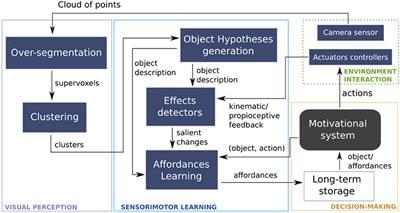Despite major progress in Robotics and AI, robots are still basically “zombies” repeatedly achieving actions and tasks without understanding what they are doing. Deep-Learning AI programs classify tremendous amounts of data without grasping the meaning of their inputs or outputs. We still lack a genuine theory of the underlying principles and methods that would enable robots to understand their environment, to be cognizant of what they do, to take appropriate and timely initiatives, to learn from their own experience and to show that they know that they have learned and how. The rationale of this paper is that the understanding of its environment by an agent (the agent itself and its effects on the environment included) requires its self-awareness, which actual ly is itself emerging as a result of this understanding and the distinction that the agent is capable to make between its own mind-body and its environment. The paper develops along five issues: agent perception and interaction with the environment; learning actions; agent interaction with other agents–specifically humans; decision-making; and the cognitive architecture integrating these capacities.
We are interested here in robotic agents, i.e., physical machines with perceptual, computational and action capabilities. We believe we still lack a genuine theory of the underlying principles and methods that would explain how we can design robots that can understand their environment and not just build representations lacking meaning, to be cognizant about what they do and about the purpose of their actions, to take timely initiatives beyond goals set by human programmers or users, and to learn from their own experience, knowing what they have learned and how they did so.
